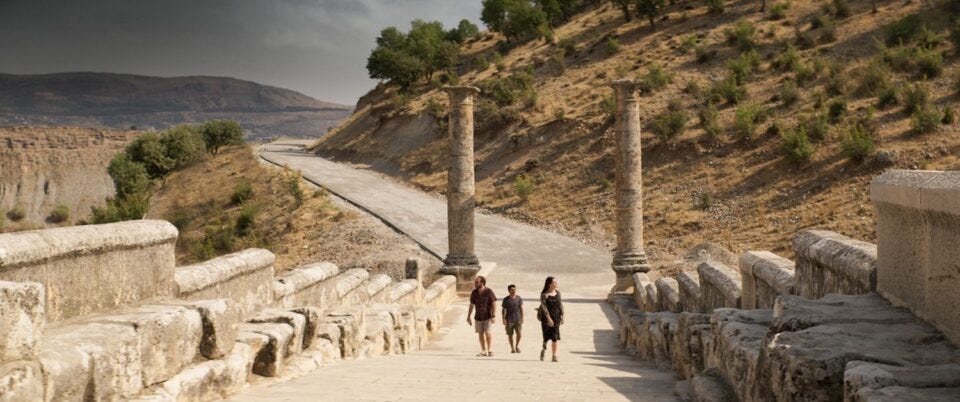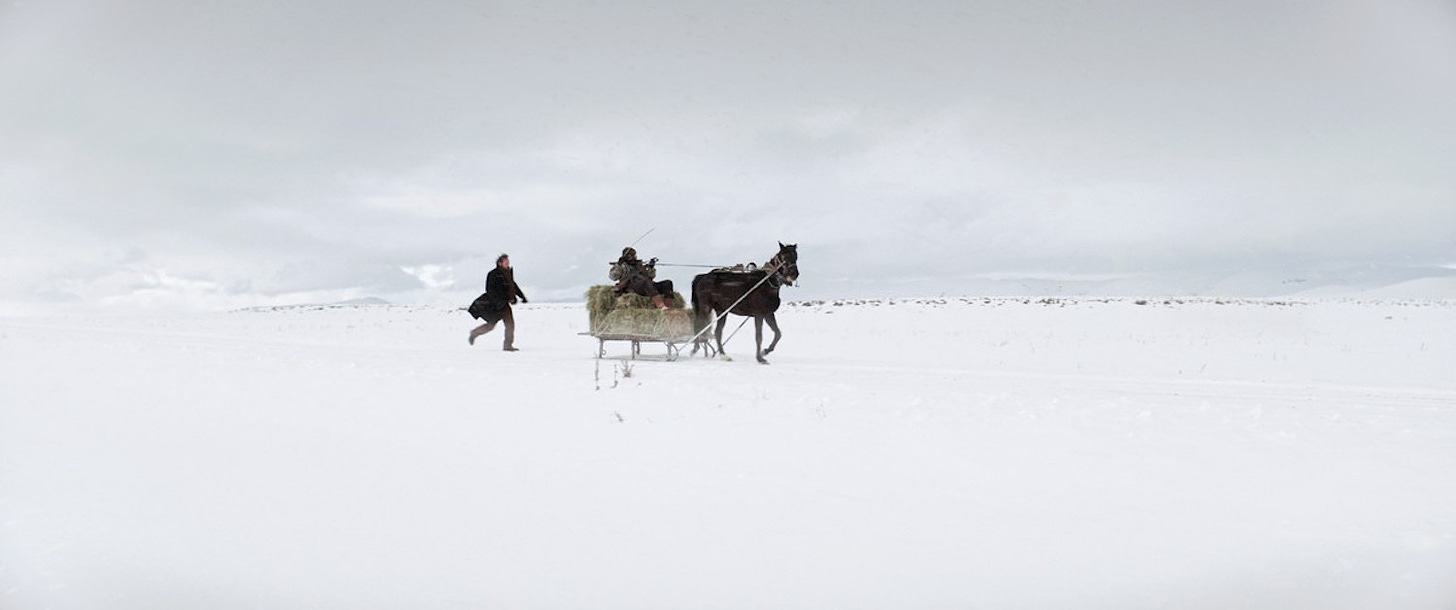Before we dive into the article: I’d like to thank Carlos Grau for donating to the Ko-Fi fund!
Nuri Bilge Ceylan is basically a 19th-century Russian novelist.
I don’t mean literally — literally speaking, he is a 21st-century Turkish filmmaker, and a rather cinematic one at that, setting his protagonists against the immense harshness of Anatolian plains — but metaphorically; in theme, pacing and even shot composition. I would argue that more than any other contemporary filmmaker, his works evoke the existential inquiry and philosophical tone of the 19th-century novel, especially the Golden Age of Russian literature. Plus, simply watching the films feels like reading an epic novel — loads and loads of subtitled text over nearly three and a half hours that probably adds up to over 50,000 words. No one else, at least outside of his imitators in Turkey, is doing this.
His latest, About Dry Grasses (2023), starring Deniz Celiloglu as a petty “intellectual” serving out the end of his mandatory teaching post in a perenially-snowed-under East Turkish village, is both a sweeping epic — endless man vs. nature shots — and an intimate character study, his hero the very definition of a superfluous man — trying to exist outside of the system while seemingly trapped within a vast, complicated and often corrupt bureaucratic world.
The superfluous man, an amorphous, far-reaching term, can be applied to many types of Russian Byron-inspired heroes. As Kelly Hamren writes:
“The superfluous man is the dual product of Russian culture and Western education, a man of exceptional intelligence who is increasingly and painfully aware of his failure to synthesize knowledge and experience into lasting values, whose false dignity is continually undermined by contact with Russian reality, and whose growing alienation from self and others leads to an unabashed exhibition of and indulgence in cowardly, ludicrous, and sometimes destructive instincts.”
It certainly applies to 19th-century Russia, but perhaps it applies to modern-day Turkey as well. After all, both Russia and Turkey are diverse, authoritarian nations, with complicated, long-simmering colonial projects, caught (literally and metaphorically) between East and West. And the situation in modern Turkey, filled with obligatory postings to diverse regions with their own unique cultural traditions — an entire genre upon itself, as also seen in Emin Alper’s Burning Days (2022) — brings to mind not only Russian but also British and French colonial literature, with men barely hiding their contempt for those they have been charged with uplifting. It’s fertile ground for a highly literary type of cinema with one eye towards the future of the nation and another endlessly looking back — showing the secular dream of Mustafa Kemal Atatürk (silently featuring alongside Recep Tayyip Erdoğan in portraits throughout About Dry Grasses) stuck in a never-ending sectarian past.
Read the rest over at Journey Into Cinema!



